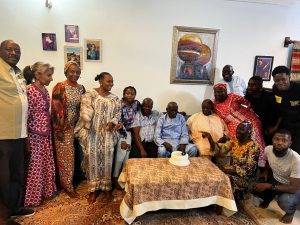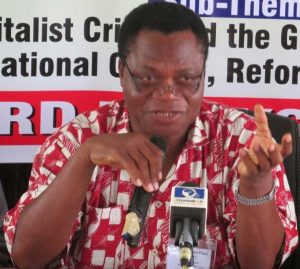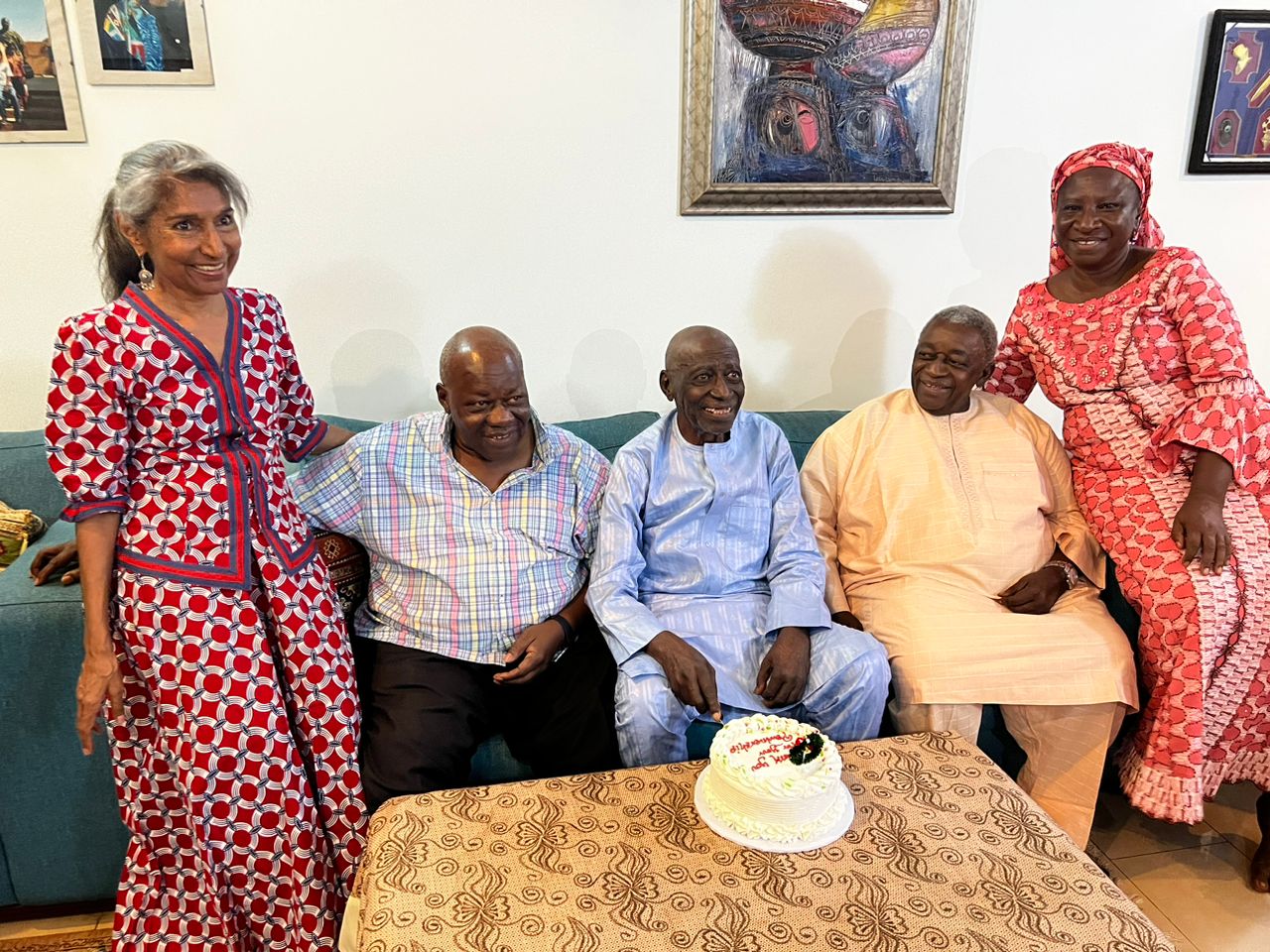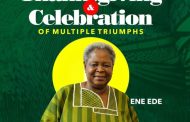It was a joyous but also painful evening. Joyous because junior brothers, grandchildren, in-laws and friends of the family gathered to celebrate a remarkable individual at 85. Painful because this same individual became a reminder to the chatting parties at the table about how far Nigeria has departed from the standards the man and his generation established and the replacement of those standards with unspeakable uncertainty and chaos for the majority. The traffic to the venue of the birthday session for D.S. Ibrahim around 8.00 pm that evening conveys the chaos in the entire Nigeria today beyond the road. Chaos on the road is always a reflection of systemic chaos in any society.
The chatting on the long table could not escape these issues thrown up by the life and times of D. S. Ibrahim, an indigenous Christian Kano man whose religious identity did not become a roadblock in the old Northern Nigeria. In fact, beyond family members, no one knows, no one asked and no one appeared to care that the initials stand for Danlami Samuel.
Intervention learnt that a graduate, he was among the set sent to the UK in the late 1950s by the Sardauna regime to train. He counts among his students Ibrahim Shekarau as well as Rabiu Musa Kwankwaso, gentlemen who became governors of Kano State and related to him as an institution in his own right. Shekarau and Kwankwaso are just two examples from a long list of his students just to make the point. A longer list of his former students is obvious for someone who taught at Rumfa College, one of the finishing schools in the North in those days. Then moving to Bauchi before returning to Kano with the creation of States in the mid-1960s. D. S. Ibrahim was a classmate of Justice Uwais at the Provincial Secondary School, Zaria, now known as AlhudaHuda Secondary School, Zaria.
He is remarkable not because his students became governors or anything else other than that by the time he retired from public service, he was a member of what was known in the language of hierarchy as the ‘Special Room’. These were individuals that the powers that came and went dared not trifle with, not because of any private armies or foreign account but simply in terms of their referentiality, individually and collectively, on matters rigour, procedure, standards, propriety, and competence.
The question is how did they achieve such mystique. Comrade John Odah argues that they did so because they lived a disciplined and contended life. Odah implied that, without the hassles that come with self-aggrandisement, their immune system never collapsed every now and then and they could be spent at 85 but not sick or mentally challenged.

Surrounded further by everyone else in the larger family
There is no doubt that the system still has a few legates of the members of the ‘Special Room’ but nothing much beyond that. Many states in Nigeria, especially in the old North have nothing that anybody can, in good conscience, call a civil service. A gentleman complained very bitterly recently about his governor. But I understand your governor is a gentleman, not a hustler, I said to him. Yes, came the reply. He is trying to get things done but he has no civil service. And he explained what he meant by that. There is a state in the Northeast where what constitutes the civil service is absolutely nothing to write home about.
Although the entire Nigeria is locked into a free fall in terms of the standards at independence up to the military take-over in 1966, there is a dimension of the collapse peculiar to the old North. Tragically, nobody is talking about it. Yet, the rest of Nigeria cannot leave the North behind in the age of deterritorialization. In case they are thinking so, they should ask Europe how impossible it could be, even with the most advanced border policing tactics and technologies.
Getting to Crips With the Crisis of Marxism in Nigeria

A foremost Nigerian philosopher and Marxist: just what is going on?
Intervention recalls it was not the North alone that the reflections on D. S. Ibrahim @ 85 brought into focus. What is clearly a crisis of Marxism in Nigeria came up too as is expected wherever retired, practising, hesitant and critical Marxists come together. But this segment brough back the punch bag approach to self-criticism in the early eighties when the Marxists staged a very successful ideological coup in Nigeria. Although they never consolidated power, they shook the system to its foundation. While we wait for the story of that exploit to be told in a contextually more sensitive manner, we must also think through it all. The system has been very vicious in hitting back at radicals but the puzzle now is whether Marxian politics stagnated in Nigeria thereafter because of state and ruling class repression or because of stagnation of Marxists themselves.
Where did majority of those who identify themselves as Marxists get the impression that Marxism could escape the philosophical context of its production? That philosophical context is Western metaphysics, the foundation of the Eurocentric imagination. Eurocentrism is a decidedly political construction of binaries: good/bad; day/night; white/black; men/women. The pairing system in Western metaphysics is decidedly political because the second of the pair is always the inferior or the negative expression of the first. So, bad becomes the inferior of good, night becomes the threat to day, blacks become the inferior of white and women the inferior of men. Throughout Western philosophy, blacks are stagnant, inferior creatures without the capacity for progress. Hegel is most cited for this but not a single Western philosopher, including Marx, escaped this cultural imaginaries of philosophising.
In the most solid text in Marxism – The Communist Manifesto – there are clear statements denying non-Western civilisations the capacity for capitalist innovation. If the message of the Western bourgeoisie as creator of the world after its own image, the lack of class struggle in the ‘Asiatic mode of production’ or locating the origin of capitalism in Grece as opposed to Egypt, etc are not eurocentrism, then somebody has to define that. There are more complete treatment of this in Prof John Hobson’s The Eastern Origin of Western Civilisation, among other recent texts.
Most Nigerian Marxists take offence at attention to plain racist statements in Marxism, implying it is blasphemy or the work of a heretic or someone who just came across the claims of a few heretics. For majority of Nigerian Marxists, there has probably nothing like the Frankfurth Scholars, Gramsci, Jacques Derrida or Ernesto Laclau and Chantal Mouffe and the huge debates each have provoked in academic as well as Marxist circles across the world. But it can be comfortably asserted that anyone who has not encountered some of these debates is not a Marxist anymore but someone probably using Marxism as a cover for something else.
A Nigerian Marxist said in 2021 that another Nigerian Marxist’s “erroneous and unscientific assertion that “the material world is the product of our consciousness”, confirms his bold efforts at reintroduction of the much refuted metaphysical subjective idealism into the realm of the triumphant scientific world”. This sentence can only come from someone who has not read even a sentence in the great fight between positivism and post-positivism in the post-Cold War. How can these sort of Marxists achieve any revolution by living in denial of the analytical lapses in the orthodoxy driving the task?
Marxism is not a religion. It is not privileged from the culture of critique and reversal, extension, updating or reformulation with the aim of making it even more innovative and radical in its emancipatory possibilities. For even if it escaped the cultural context of its philosophising, it cannot escape the limits of its structuralist thinking which makes it a theory in Realism although British activist scholars such as Alex Callinicos would argue that Marxism is a special type of Realism. It was the position he basically advanced in his 2015 exchange with a UCL debater. Whether this can pass the test is still open but it opens up another fundamental crisis of Marxist epistemology following the rupturing of structuralism everywhere else.
Against the background of the foregone, it makes sense to challenge the generation that staged the ideological coup against Nigeria to return to complete the task. The task is not to try another coup in radical democratic politics but to rescue Marxism from the stagnation within.
The Left as a disciplinary actor on a reckless power elite as in Nigeria makes this a crucial and urgent task. The Left establishment has a number of elders on the ground who can supervene this at almost no cost!
Now, On Why ‘Jibo Must Pay’
Prof Chris Kwaja was not at the ‘D S Ibrahim @ 85’ dinner but he is the coiner of the ‘Jibo Must Pay’ slogan that is expected to drive the campaign to compel Jibrin Ibrahim to depart Comparative Politics and return to social theory. But why must Jibo theorise?
It is simple. He is among the few who got the very best that Nigeria could give in terms of university education. This was not just in relation to hardcore radical social science, particularly Marxism at the now defunct Faculty of Arts and Social Sciences (FASS) at Ahmadu Bello University, Zaria in the late 70s, it even more importantly has to do with grooming in the protocols of knowledge production and communication. Knowledge production protocol is at the heart of the crisis in the university system today, making undergraduate education a torture chamber for students.
Then Jibo went to France for his PhD. Without suggesting that France is a superior place to go, it is, nevertheless, the home of philosophy. France is where structuralism took roots. It is also where poststructuralism took roots although some African scholars are claiming poststructuralism since the provocation for it came almost all from the horrors of the Algerian War of Independence. But that is a matter for another day.
The foregone positions Jibo to be the theorist rather than a policy person which he has become. They are not necessarily contradictory but theorising is superior because theory is power. If we do not have our own theorists, theorists from other spaces will theorise us from their own stock of imaginative geographies. That is how Africa became ‘the heart of darkness’, the metaphor that has set the boundaries beyond which Africa has not been able to transcend for centuries.
If the Nigerian State were still in its senses, the Jibos of this world are those who shall be kept in special spaces to be producing theories. Unfortunately, the Nigerian State or what is left of it has also fallen into the trap that practice, not theories, is what is needed. But the idea that theories are not as important as practicals is also a theory. So, there is no escaping theories without serious complications. Without state pressures, Jibo has gone into a fish consuming career that further intrudes into the social theory project.
To burst that is a task that must be done, even if it means approaching Nyesom Wike, FCT Minister, so that his demolition squad going about demolishing women’s livelihood across Abuja could turn their attention on fish joints as a first step to compelling Jibo’s return to social theory!
If we have just voted a 78 year old as president of Liberia, then Jibo has no age problem in this task! More so that he has made statements in one or two of his existing essays that points at where social theory is today. It is the job of the younger elements around him till he makes a theoretical statements. There is, additionally, Dr. Chermaine Peirera to provide the post-positivist back up for this effort.
Intervention says ‘Happy 85th Anniversary to D. S Ibrahim’, for the past and for the night which made possible the offensives and counter-offensives over Nigeria’s crisis.




























